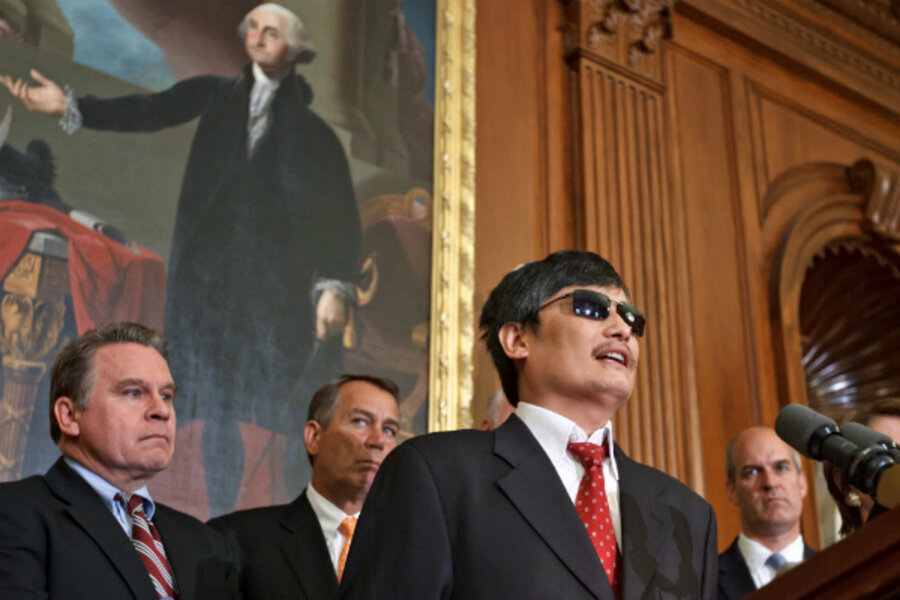When Secretary of State Hillary Rodham Clinton negotiated dissident Chen Guangcheng’s departure for study in the US in May, she did it not only while in China but from the midst of an intense, multiday strategic dialogue with senior Chinese officials.
The result reflected the quintessential feature of Obama’s approach to China and human rights – a balance that seeks to press China to improve its human-rights record without embarrassing it or making Chinese leaders feel as if they are being pushed up against a wall, something Obama believes would be counterproductive.
Romney says he would take a tougher stance toward China on human rights, although some analysts point out that candidate George W. Bush promised a tougher line on China than he generally took as president.
In his China and East Asia position paper, Romney puts in stark terms the confrontational approach he would take with China over human rights. Stating that the “Chinese regime continues to deny its people basic political freedoms and human rights,” he adds that “a nation that represses its own people cannot be a trusted partner in an international system based on economic and political freedom.”
For Romney, the US has “an important role to play” in encouraging China’s evolution toward a more democratic political system, primarily by providing “vigorous support” for civil-society organizations advocating political reform, women’s rights, and religious freedom.
Seeking to differentiate his approach from what he says has been Obama’s policy of relegating freedom to “second or third place,” Romney picks up a line from a foreign-policy speech he gave last year and says, “If the United States fails to support dissidents out of fear of offending the Chinese government, we will merely embolden China’s leaders.”
For a full list of stories about how Romney and Obama differ on the issues, click here.





